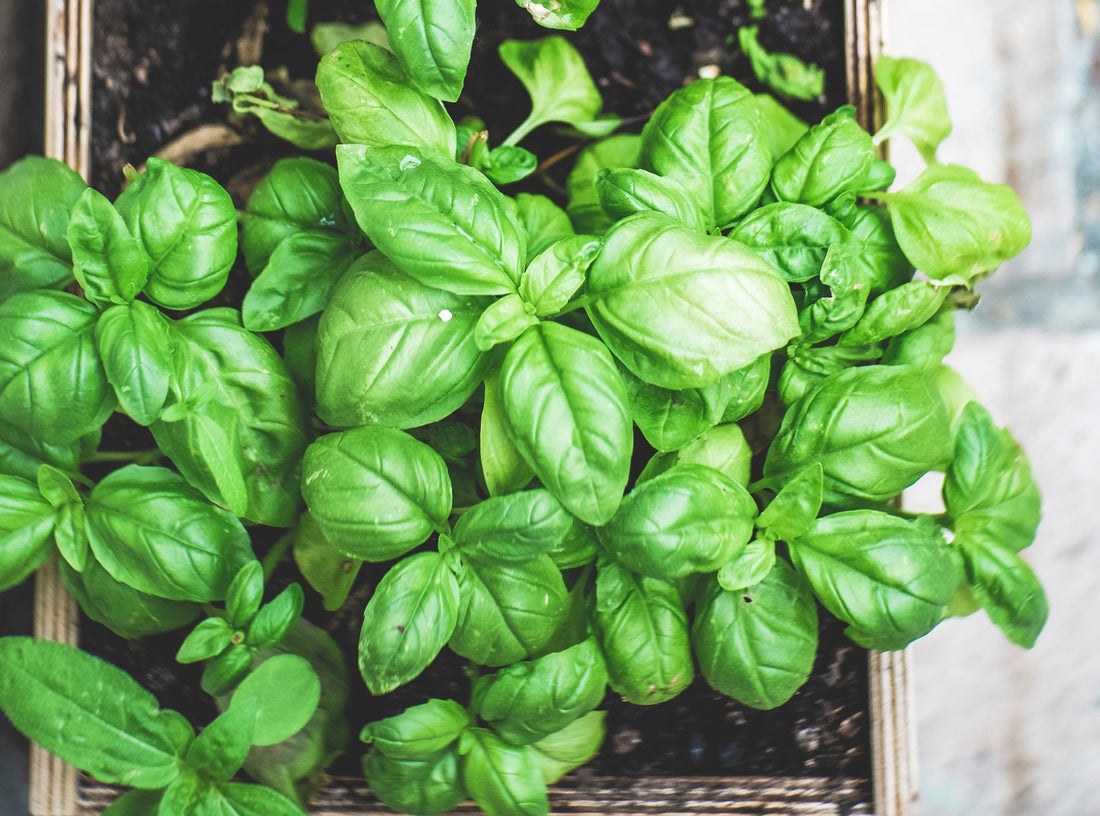As a bonus, most herbs are quite easy to grow, making them a breeze to add to your indoor or outdoor garden. There are a lot of herbs to choose from, which can be overwhelming. Try starting with these three, and expand the herb garden from there.
Basil
The versatility of basil is almost boundless. Basil has been popular in cuisines for a long time. It adds incredible flavor to pasta sauces, dipping oils, stews, soups, stir-fries, and vegetables. Most notably, fresh basil makes fantastic pesto. Use fresh basil whenever possible for the best flavor and intensity.Basil provides vitamin K, vitamin A, manganese, and magnesium. It is an excellent source of antioxidants, something you can usually only get from foods like fruit. It also works as an anti-inflammatory, holds antibacterial properties, and works as a natural adaptogen, which assists your body in handling stress.
It takes a lot of basil to make pesto, so be sure to plant at least four plants if that is your plan. Otherwise, one or two basil plants are enough. Basil plants are annuals, so you will need to plant new ones each year.
Parsley
Once regulated to the fate of sad plate garnish, parsley has come around to show us how incredible it is as a flavoring agent. Parsley is also wonderful for our health. Fresh parsley is excellent added to green salads, smoothies, and homemade juices. It can be used in marinades and dressings and works as a flavorful substitute for basil in pesto.Parsley is high in vitamins A and C and very high in vitamin K. Vitamin K is good for the health of your heart and bones and is necessary for good blood clotting. It also provides potassium, folate, iron, magnesium, and calcium. Parsley is high in antioxidants and can help with inflammation.
One parsley plant will go a long way. It should be harvested regularly so the plant can produce more. If it is left too long, the leaves will turn yellow and taste bitter. Parsley is a biennial.
Rosemary
Sprigs of rosemary will brighten up soups, stews, proteins, baked potatoes, infused oils, and the entire household if it is left to hang from the ceiling to dry. Fresh rosemary has a subtler flavor than dried, but either can be used for flavoring without much of a difference.When it comes to improving one's health, though, rosemary is not subtle at all. It provides iron, potassium, fiber, calcium, copper, magnesium, B vitamins, and vitamin A. Rosemary has been linked to improved memory and better digestive function.
Rosemary is a perennial, so once you plant it, you'll be able to enjoy it for years. One plant is generally more than adequate for a household. Rosemary plants will grow as large as you allow them, so transplant it to a larger pot if you want more. Or, plant it outside and watch it grow into a large shrub!
For centuries, fresh herbs have been used to improve the lives of people all over the world. Add these herbs to your garden and enjoy all the benefits of having them at your fingertips.



